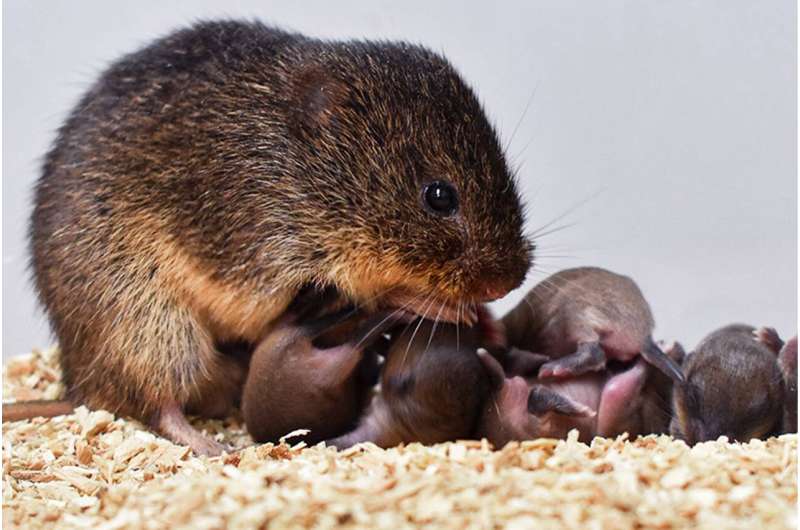This article has been reviewed according to Science X's editorial process and policies. Editors have highlighted the following attributes while ensuring the content's credibility:
fact-checked
peer-reviewed publication
trusted source
proofread
Animal study shows a father's care could slow aging, alter brains and behavior

Fathers who pay attention and care for their sons can mold their progeny's developing nervous system and influence their offspring's future behavior, according to University of Virginia researchers who studied rodent parents and pups.
A study of prairie voles by a team of scientists led by Joshua Danoff discovered that the amount of care rodent fathers offered their sons literally sculpted their developing nervous system, slowed aging and changed gene expression in the brain, changing behavioral patterns later in life. The findings are published in the journal Proceedings of the National Academy of Sciences.
Scientific studies are leaving no doubt that children, especially males, who grow up with high levels of social and emotional support tend to experience longer, healthier lives. Conversely, early neglect or trauma can have adverse consequences.
Clues to the biological mechanisms behind those developmental differences have emerged from the animal research conducted in the laboratory of psychology professor Jess Connelly.
"I'm really interested in how experience affects development, and one of the reasons that I went to do my training with Jess was because of the prairie vole's co-parenting model of the pups. Their development is a lot more varied than you might get with just one parent," said Danoff, who earned his doctorate from UVA this spring and is now a postdoctoral researcher at Rutgers University.
Prairie voles share with humans a lifestyle known as "social monogamy," meaning both mothers and fathers care for and protect the young. Like humans, vole fathers vary widely in the amount of care they offer their young, more so than mothers. That unique social structure allowed the team in Connelly's lab to examine how an early life experience with active paternal parents impacts offspring.
Young males that received high levels of a father's care in early life later proved more socially responsive to babies. Remarkably, their brains were structurally different in areas that regulate the capacity for reward.
Males reared by high-nurture fathers also had changes in gene expression—specifically, genes previously shown to impact sociality in humans.
Both males and females that received extra "fathering" had levels of a natural chemical that indicate their bodies aged more slowly.
"The way that the environment impacts your physiology can actually make you age more quickly or more slowly than your actual chronological age," Connelly said. "That's a really important point."
More information: Joshua S. Danoff et al, Father's care uniquely influences male neurodevelopment, Proceedings of the National Academy of Sciences (2023). DOI: 10.1073/pnas.2308798120
Journal information: Proceedings of the National Academy of Sciences
Provided by University of Virginia



















